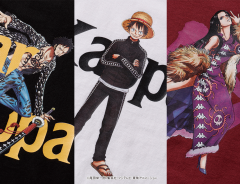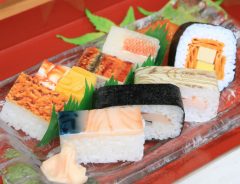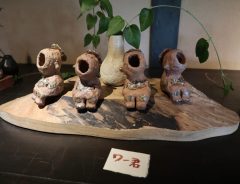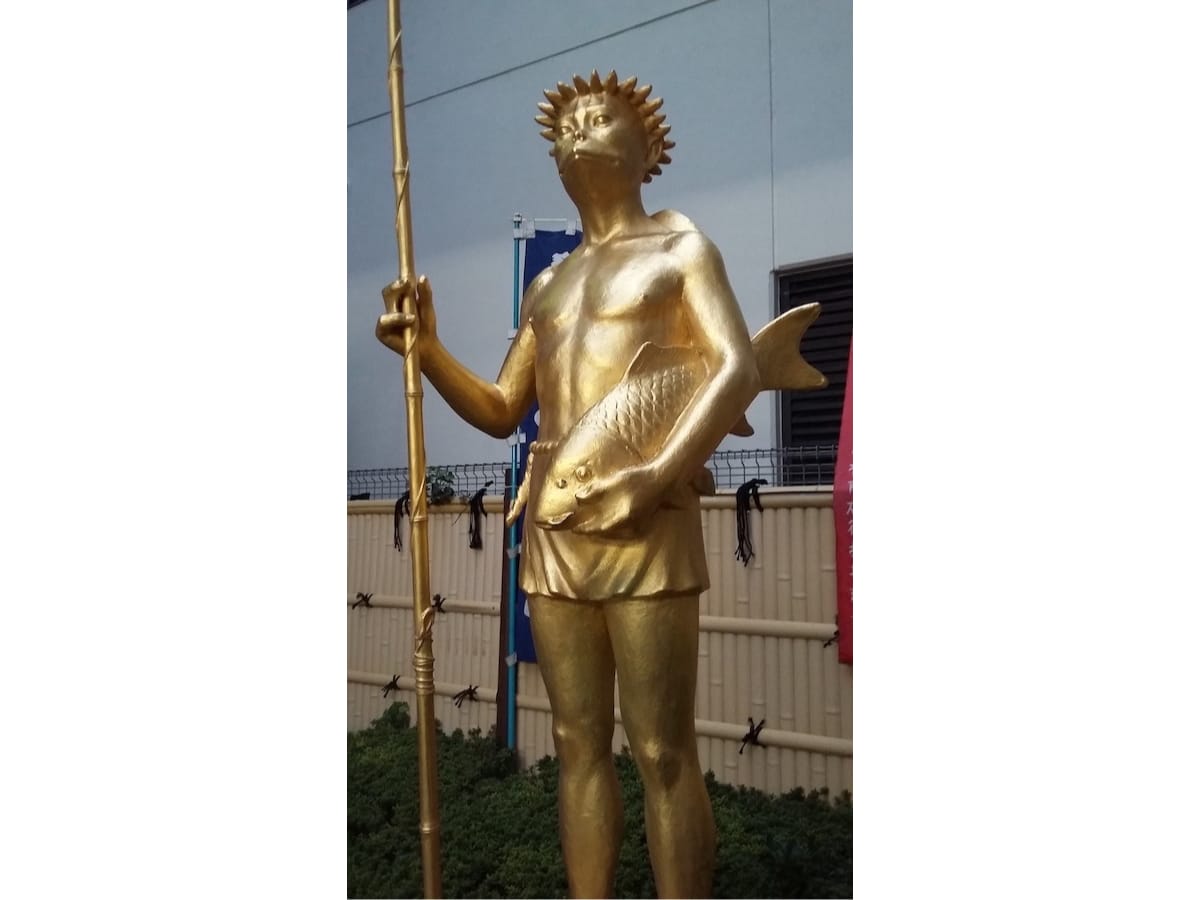- Tags:
- Kappa / Kappabashi / water imp
Related Article
-

Japan Travel and Folklore: Discover Iwate and go Kappa Hunting in Tono City
-

Kappa and One Piece’s anime inspired sportswear collab returns with swashbuckling character designs
-

Japanese Plastic Food Displays Look So Delicious
-

Visiting the Gallery SAJIMA- KAPPA SAN Exhibition in Kamakura
-

Sportswear brand Kappa collab with One Piece for an anime twist on their classic designs
-

Gajiro Is A Terrifying Japanese Mascot That Sells Curry And Stars In A Horror Movie



Kappabashi-dori is the street in Asakusa that people come to when they want to buy cutlery and tableware in Tokyo. Living on Kappabashi-dori, I have often wondered about the kappa, the amphibious imp of Japanese folklore that gives the street its name. The street’s shopkeepers have adopted the kappa as their mascot, so I often see him in the area.
The kanji for kappa (河童) has him as ‘a child of the river.’ While he is a water creature, he does occasionally venture onto dry land. He looks like a green boy, with webbed hands and feet and a turtle’s shell on his back.
Photo by George Lloyd
A kappa has a depression on the top of his head, called a sara, or ‘dish.’ Whenever he is away from the river, he will be at pains to keep his dish full of water, for if it gets damaged, or he spills the water, he will lose his strength. That’s why he usually keeps it covered with a metal cap for protection.
Photo by George Lloyd
On the face of it, kappa are loveable creatures. They are experts in folk medicine, so they’re good to have around in cases of accidents. Indeed, it is said that human beings learned the art of bone setting from them.
Interestingly, kappa like many of the foods that humans do (always a good way to win favour in Japan). They particularly enjoy cucumbers (which is why a cucumber-filled sushi roll is called a kappamaki). They are also partial to aubergines, pumpkins and soba noodles.
Reikai 霊槐 (copyist). Owned by Iwase Bunko Collection 岩瀬文庫コレクション / Public domain
But most people are wary of kappa, seeing them as mischievous troublemakers. Most of the time, they do nothing more harmful than looking up women's kimonos, but they have been accused of more serious offences. The early visitor to Japan, Lafcadio Hearn, tells a story from the village of Kawachimura in Shimane prefecture, in which a kappa stole a horse. He was captured and made to write a statement in which he vowed never to steal the villagers’ livestock again.
Juntaku / Public domain
Kappa have also been known to attack people, and to this day, you’ll sometimes see signs in the Japanese countryside warning people to be careful of kappa when walking near rivers. Kappa love sumo wrestling and are keen wrestlers, which makes them formidable adversaries. Given half a chance, a kappa will probably try to remove your shirikodama (尻子玉). This is a mythical ball said to contain your soul. It is located in your anus, so an attack by a kappa is likely to be painful, and probably lethal.
If you’re worried about being attacked by a kappa, bear in mind that they hate sesame and ginger, so if you’re thinking of going for a riverside picnic, it’s a good idea to take snacks flavoured with either.
What else can you do to protect yourself from kappa? Some people say that you should eat a cucumber before swimming in rivers to keep them at bay. Others say that this only makes an attack more likely. Since the advice is not clear, country folk often make offerings of freshly sliced cucumber to kappa at their local Shinto shrine.
Yoshitoshi / Public domain
If you find yourself in the unenviable position of being confronted by a shirikodama-seeking kappa and have no sesame or ginger to hand, don’t despair. Like many Japanese people, kappa are obsessively well-mannered. If you make a deep bow to a kappa, he is sure to return the gesture. When he does so, the water in the dish on his head will spill out. Deprived of his power, he will find himself stuck in the bowing position and will no longer be able to hurt you.
At this point, you can run away. Or, if you so choose, you can refill his dish with river water. This will win his gratitude and he will be sure to serve you for the rest of your life.
That’s what I’d do, if ever I were confronted by a kappa, I say to myself. I am at Sogenji, a Buddhist temple just off Kappabashi-dori. The temple is dedicated to kappa and is even said to hold the mummified arm of a kappa. So far, I’ve found no sign of the arm, but a local shopkeeper I met said he’d never heard of it. He also told me that Kappabashi-dori has nothing to do with mythological river children and was actually named after the raincoats (kappa 合羽) that local people used to hang out to dry on the bridge. I felt a bit disappointed. Oh well, it was a nice story while it lasted.